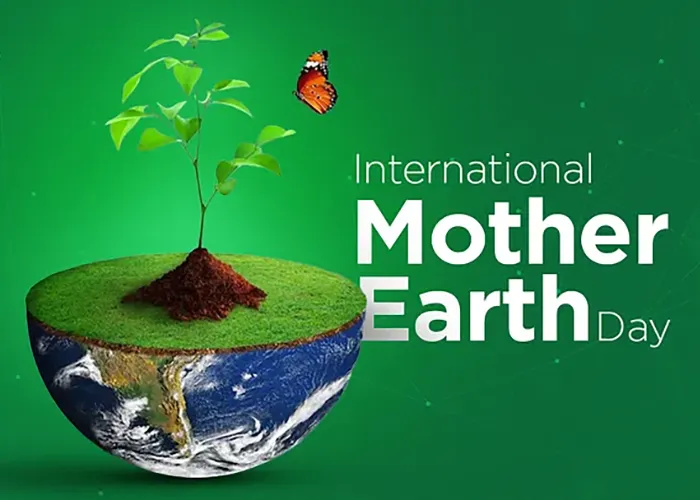Editorial – volume02 Issue16
Three Calls, One Faith: Chivalry, Vision, and Stewardship in Islam
Introduction
This week presents a unique trio of observances that speak to the physical, intellectual, and spiritual dimensions of human life: National Day of Pahlevani and Zurkhaneh Sports (27th Farvardin), World Creativity and Innovation Day (21st April), and International Mother Earth Day (22nd April). Each of these occasions offers an opportunity to revisit foundational Islamic principles and apply them in modern contexts.
For Muslim community leaders and Imams, these are more than mere commemorative dates. They offer rich ground for meaningful reflection, community engagement, and ethical action. Islam’s timeless teachings empower us to live in harmony with our inner strength, God-given intellect, and the Earth that sustains us.
- The Spirit of Chivalry: National Day of Pahlevani and Zurkhaneh Sports
Day of Pahlevani honours a unique tradition that combines physical strength, moral discipline, and spiritual humility. Rooted in centuries-old values of chivalry (javanmardi) and honour, this form of sport emphasises ethics over ego and strength in the service of justice and the weak.
Pahlevani and Zurkhaneh Sports is a traditional Iranian system of athletics that combines martial arts, strength training, music, and spiritual teachings rooted in Islamic and Persian values. Practised in a domed structure called a Zurkhaneh or “house of strength,” it cultivates not just physical power but moral character, humility, and camaraderie among its practitioners. The sport draws inspiration from the lives of historical champions (pahlevans) who embodied justice, courage, and service to others.
In Islam, true strength is not defined merely by power, but by self-control and righteousness. The Prophet Muhammad (peace be upon him) said:
لَيْسَ الشَّدِيدُ بِالصُّرَعَةِ، إِنَّمَا الشَّدِيدُ الَّذِي يَمْلِكُ نَفْسَهُ عِندَ الْغَضَبِ (روضة الواعظین، ج ۲،ص ۳۸۰)
“The strong is not the one who overcomes others by force, but the one who controls himself when angry.”
This profound hadith reshapes our understanding of strength through a deeply ethical lens. True strength, as described by the Prophet Muhammad PBUH, is not about physical dominance or defeating others in conflict; rather, it lies in the ability to control one’s inner self—particularly in moments of anger. Anger is a powerful emotion that can lead to harm, regret, and broken relationships if left unchecked. Therefore, the one who can restrain their impulses, respond with patience, and uphold justice even when provoked, demonstrates a higher moral and spiritual strength. In a world that often glorifies outward power, this hadith calls us to develop inner resilience and emotional intelligence as the true measure of strength.
Message for Muslims in the West:
In a society where success is often measured by dominance or image, this is a timely reminder that Islam values restraint, humility, and service. Let us raise a generation that connects physical development with ethical maturity.
Practical Challenge:
Organise or support a community sports programme that integrates character-building and Islamic virtues, such as patience, teamwork, and helping others.
- Illuminating Minds: World Creativity and Innovation Day (21 April)
In an age defined by rapid change, artificial intelligence, and dynamic problem-solving, the value of creativity and innovation is more urgent than ever. But creativity, in the Islamic worldview, is not a detachment from the sacred—it is a reflection of Allah’s continuous action and the unfolding of His wisdom in the world. Islam not only welcomes innovation when grounded in ethics and service—it encourages it.
The Qur’an beautifully reminds us:
كُلَّ يَوْمٍ هُوَ فِي شَأْنٍ
“Every day He is in [a new] affair.” (Surah Al-Rahman, 55:29)
This verse has been interpreted to mean that Allah is constantly engaged in renewing His creation, responding to the needs of His servants, granting life and death, honour and abasement, and maintaining the ever-changing order of the universe. It is a call for humans to reflect the divine pattern of renewal and purposeful change in their own lives and communities.
Message for Muslims in the West:
Creativity is not a secular luxury—it is a divine trust. In increasingly complex and diverse societies, Muslims must embrace their capacity to innovate with purpose, finding solutions rooted in justice, sustainability, and compassion. This includes contributions to technology, education, the arts, and social reform—always grounded in Islamic ethics.
Practical Challenge:
Host a “Qur’an-Inspired Ideas” workshop at your mosque or centre where youth and adults explore how Islamic teachings can inspire solutions to real-world challenges in their communities—from combating loneliness to reducing food waste or building interfaith understanding.
- Trustees of the Earth: International Mother Earth Day (22 April)
The ecological crises of our time—pollution, climate change, deforestation—are stark reminders that humanity has failed in its stewardship. Islam declared long before the UN that the Earth is a sacred trust. The Qur’an states:
هُوَ أَنْشَأَكُم مِّنَ الْأَرْضِ وَاسْتَعْمَرَكُمْ فِيهَا
“He brought you forth from the Earth and settled you upon it to cultivate it.” (Surah Hud, 11:61)
This verse reminds us that our relationship with the Earth is not one of ownership, but of trust and responsibility. This verse is interpreted and its educational messages are outlined in the Ayah of the Week section of this issue.
Message for Muslims in the West:
Living as a minority does not absolve us from global responsibilities. On the contrary, it gives us the opportunity to demonstrate how Islamic teachings can offer meaningful, sustainable alternatives in environmental ethics.
Practical Challenge:
Start or join a local mosque or community eco-initiative—be it a recycling campaign, tree-planting event, or environmental education workshop.
editor's pick
news via inbox
Subscribe to the newsletter.




